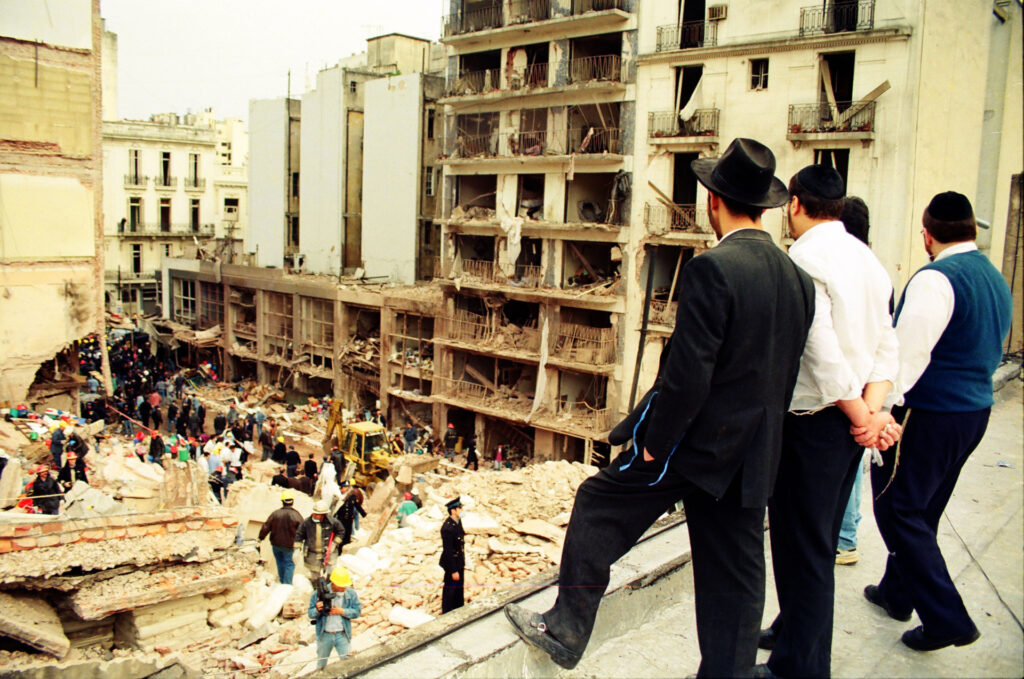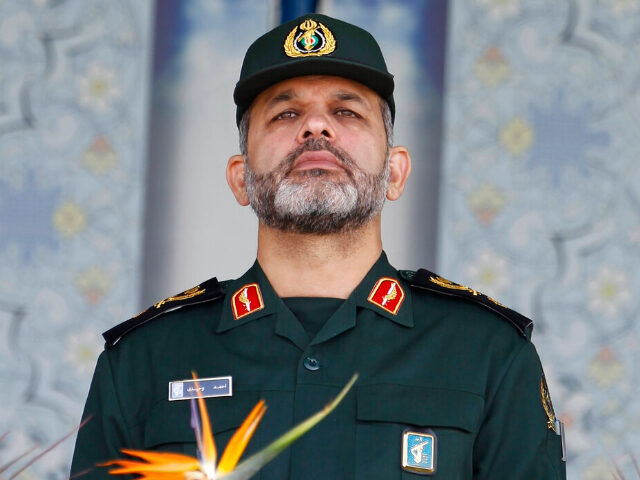The government of Argentina on Tuesday requested the arrest of Iranian Interior Minister Ahmad Vahidi, identified as one of the individuals responsible for the 1994 bombing of the Argentine-Israeli Mutual Association (AMIA), a Jewish community center located in Buenos Aires.
Vahidi has an active Interpol “red alert” to his name, which serves as a non-binding request to Interpol members to arrest a person. Interpol does not have the power to arrest anyone as an institution.
Argentina’s Foreign Ministry released a statement on Tuesday evening urging Vahidi’s arrest, stating that he is presently part of an Iranian government delegation visiting Sri Lanka and Pakistan, urging both countries to arrest Vahidi:
In this context, at the request of the Argentine authorities, the Interpol Central Bureau based in Lyon issued a Red Notice for his arrest. On the occasion of his trip, Argentina has requested the governments of Pakistan and Sri Lanka to arrest him in accordance with Interpol mechanisms.
Parallel to the work being carried out by the Ministry of Security and the Argentine Foreign Ministry with the intervention of the Embassies of our country in Pakistan and India, the Interpol National Central Bureau Buenos Aires (NCB) of the Argentine Federal Police asked its counterpart NCB Islamabad to proceed with the preventive arrest of the perpetrator with a view to extradition to Argentina.
— Cancillería Argentina 🇷 (@CancilleriaARG) April 23, 2024
The request comes less than two weeks after an Argentine Cassation Court issued a ruling that formally declares both Iran and the Shiite jihadist organization Hezbollah responsible for both the 1994 AMIA bombing and the 1992 bombing of the Israeli embassy in Buenos Aires.
On July 18, 1994, Hezbollah terrorists drove a van filled with explosives into the AMIA’s building in Buenos Aires. The attack — which was the deadliest terrorist attack in the Western Hemisphere before the September 11, 2001, attacks — left 85 dead and hundreds injured.

Jewish men look on as rescuers sift through the rubble at the site of a car-bombing at the Argentine-Israeli Mutual Association (AMIA) Jewish Community Center in Buenos Aires, Argentina, on July 18, 1994. (Diego Levy/Bloomberg via Getty Images)
The Argentine courts declared that Hezbollah acted on behalf of Iran’s Islamic regime to carry out both terrorist attacks against Jewish targets in Argentine territory. The court also declared both attacks crimes against humanity, which allows the Argentine government to present formal complaints against Iran at international courts and for the families of the victims to seek justice.
Vahidi and all others responsible have long been the subject of active Interpol “red notices” but have remained protected in their respective countries. At the time of the 1994 AMIA bombing attack, Vahidi was serving as a commander in the Quds Force of the Islamic Revolutionary Guard Corps (IRGC), a U.S.-designated terrorist organization. Vahidi also served as Defense Minister from 2009 to 2013 under the presidency of Mahmoud Ahmadinejad.
While Iran and Hezbollah were widely believed to have been behind both terrorist attacks, Argentine courts have not issued any legal ruling that formally declares them guilty.
The back-to-back socialist presidencies of husband-and-wife couple Néstor Kirchner (2003-2007) and Cristina Fernández de Kirchner (2007-2015) established a deep friendly relationship with the Iranian regime. During Fernández de Kirchner’s presidency, the Argentine government signed a highly criticized “memorandum of understanding” with Iran in 2013 that allowed the Islamic regime to participate in the AMIA bombing investigations — which meant that Iran was able to investigate itself over its own participation in the terrorist attack.
Argentine prosecutor Alberto Nisman, who had been working on the AMIA bombing investigations since the late 1990s, accused Fernández de Kirchner of helping Iran cover up its involvement in the deadly AMIA bombing in exchange for favorable trade deals.

Cristina Fernández de Kirchner (Juan Ignacio Roncoroni – Pool/Getty Images)
Nisman was found dead of a gunshot wound on January 18, 2015, hours before he was slated to give testimony to Congress as part of his investigation against the former socialist president. Argentine authorities at the time ruled Nisman’s death a “suicide.”
Argentina’s “memorandum of understanding” with Iran over the AMIA bombing investigations was rescinded by Fernández de Kirchner’s successor, former center-right President Mauricio Macri.
The cover-up investigation against Fernández de Kirchner continued after Nisman’s death. However, the case was controversially dismissed in October 2021 when Fernández de Kirchner served as vice president during the administration of former socialist president Alberto Fernández (no relation).
Christian K. Caruzo is a Venezuelan writer and documents life under socialism. You can follow him on Twitter here.

COMMENTS
Please let us know if you're having issues with commenting.